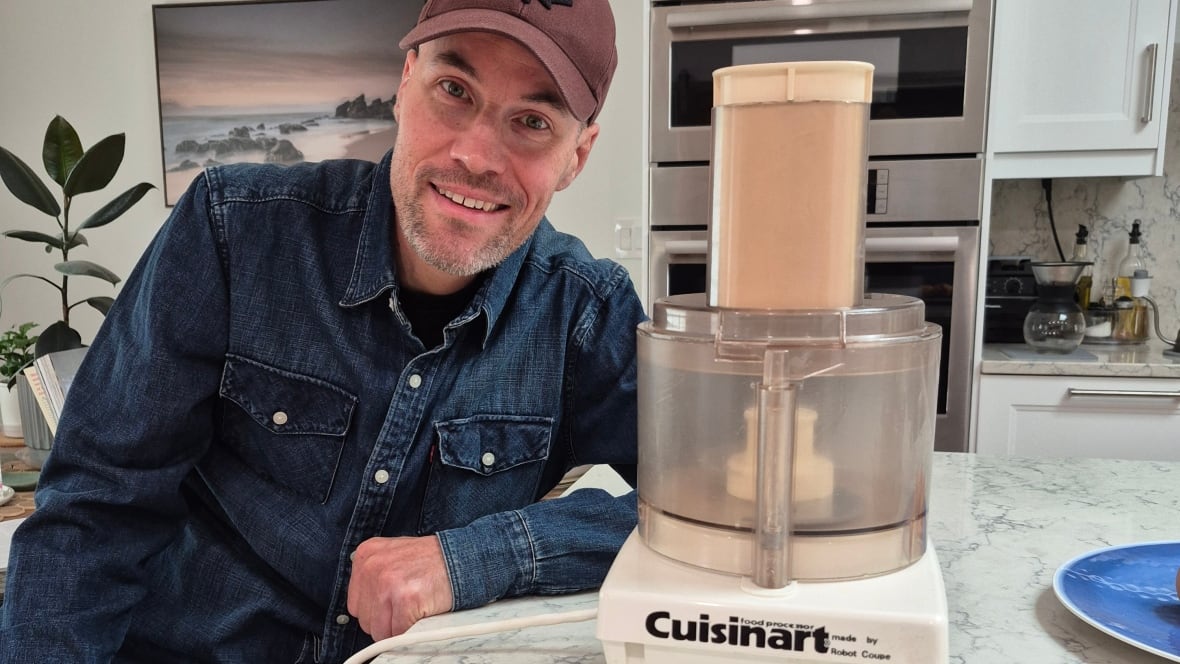Business
Consumers Demand Durability as Products Fall Apart Too Soon

Many consumers are expressing frustration with the declining quality of household products, prompting a growing movement towards durability and repairability. A notable example is Scott Noble, who still uses a Cuisinart blender that dates back to the 1980s, a gift from his mother. Noble reflects on the difference in product longevity, stating, “Unfortunately, her new one didn’t last as long as the original one, and I still use the original one to this day.” This sentiment resonates with countless others who are increasingly opting for items designed to last, rather than those that require frequent replacement.
Online communities, such as the subreddit r/BuyItForLife, play a crucial role in this shift. With millions of members, these forums allow users to share insights on durable products, from cookware to vintage collectibles. Despite this growing awareness, experts indicate that finding hardwearing items is becoming more challenging. According to Tima Bansal, an economist at the Ivey Business School, corporations are intentionally manufacturing products that have shorter lifespans to maximize profits.
Corporate Choices and Consumer Impact
Bansal describes the materials economy as a key factor contributing to this trend. “Corporations have a profit incentive. And, so, the more that they sell, the more money they make,” she explains. This approach often results in consumers needing to replace items like dishwashers, which are ideally designed to last for decades. In contrast, fast fashion brands exemplify this issue, producing low-quality clothing that encourages a cycle of disposable consumerism.
The challenge lies not only in corporate profit motives but also in the higher costs associated with producing durable goods from quality materials. “People are now buying stuff where they just wear it once and then they throw it away,” Bansal notes. This pattern perpetuates waste and undermines sustainability efforts.
Emerging Solutions and the Right to Repair
Amid the challenges of disposable culture, a number of businesses are committed to creating sustainable products. One such company is Open Funk, based in Berlin, which focuses on designing kitchen appliances intended to last. Co-founder Paul Anca emphasizes the importance of repairability in their products. “We’ve applied principles of repairability, modularity, local production, open source and the right to repair directly into the product from the onset,” he states.
Anca’s journey began with a personal frustration when his own blender failed shortly after purchase. He faced skepticism from financial institutions regarding the demand for high-quality, repairable products. Yet, he remains optimistic, believing that many households need reliable blenders and similar items. “The reality is that most households have a blender. And these blenders tend to break every six years nowadays,” he asserts.
As an independent entity, Open Funk is not under pressure from shareholders to prioritize profit over sustainability. Their commitment to producing long-lasting goods reflects a larger shift in consumer values, as more people seek to align their purchases with sustainability.
Another advocate for change is Kyle Wiens, CEO of iFixit, who is working to make repairs more accessible through right-to-repair legislation. Wiens argues that consumers should have the necessary information to fix their products rather than discarding them. “Consumers need to have the information up front,” he insists. He highlights that extending the lifespan of electronics could significantly reduce carbon emissions.
Wiens points out the lack of transparency in product durability. For example, when comparing toasters at a store, consumers often cannot ascertain which model will last longer. He advocates for clearer labeling regarding durability and repairability, suggesting that the European Union’s 2024 mandate requiring manufacturers to provide repair options could serve as a model for other regions.
Shared Responsibility for Sustainable Products
As the conversation around product longevity continues, questions about responsibility arise. Bansal suggests that while governments have a role in incentivizing sustainable purchases, consumers also need to engage critically with their buying habits. “It’s really hard to move customers along. That’s because there are so many people and people often shop on price,” she explains.
To drive meaningful change, consumers can influence the market by prioritizing companies that offer durable options. Bansal stresses the importance of asking questions about a product’s longevity and repairability before making a purchase decision.
On the manufacturing side, Anca believes that companies must take the initiative to produce items that are not destined for the landfill. “If not us as manufacturers, then who? Everybody’s just pointing fingers to each other,” he remarks. He emphasizes that manufacturers hold significant power to foster a sustainable future.
As consumers rally for products that endure, the push for a more sustainable approach to consumption is gaining momentum. The collective efforts of individuals, businesses, and advocates like Bansal and Wiens highlight the potential for a future where quality takes precedence over fleeting convenience.
-

 Politics4 weeks ago
Politics4 weeks agoSecwepemc First Nation Seeks Aboriginal Title Over Kamloops Area
-

 World5 months ago
World5 months agoScientists Unearth Ancient Antarctic Ice to Unlock Climate Secrets
-

 Entertainment5 months ago
Entertainment5 months agoTrump and McCormick to Announce $70 Billion Energy Investments
-

 Science5 months ago
Science5 months agoFour Astronauts Return to Earth After International Space Station Mission
-

 Lifestyle5 months ago
Lifestyle5 months agoTransLink Launches Food Truck Program to Boost Revenue in Vancouver
-

 Technology3 months ago
Technology3 months agoApple Notes Enhances Functionality with Markdown Support in macOS 26
-

 Lifestyle3 months ago
Lifestyle3 months agoManitoba’s Burger Champion Shines Again Amid Dining Innovations
-

 Top Stories2 months ago
Top Stories2 months agoUrgent Update: Fatal Crash on Highway 99 Claims Life of Pitt Meadows Man
-

 Politics4 months ago
Politics4 months agoUkrainian Tennis Star Elina Svitolina Faces Death Threats Online
-

 Sports5 months ago
Sports5 months agoSearch Underway for Missing Hunter Amid Hokkaido Bear Emergency
-

 Politics5 months ago
Politics5 months agoCarney Engages First Nations Leaders at Development Law Summit
-

 Technology5 months ago
Technology5 months agoFrosthaven Launches Early Access on July 31, 2025











